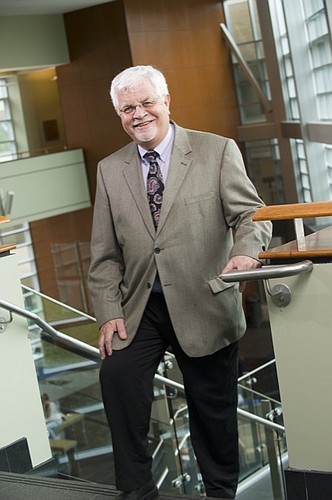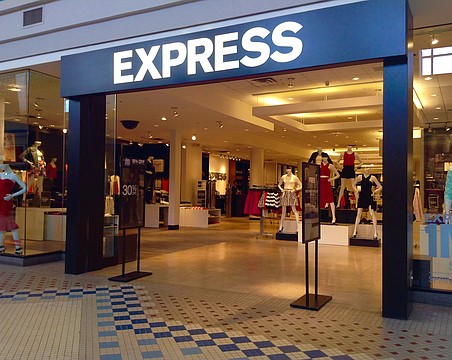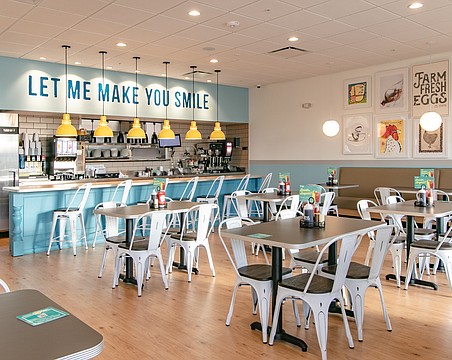REVIEW SUMMARY
Industry. Education
Key. Gulf Coast business schools are seeing steady M.B.A. enrollments, but offer more tailored degree options.
Robert Forsythe sees it happen every year: hundreds of students expressing an interest in earning a master's degree in business administration from the University of South Florida, some of whom won't qualify to attend the first class.
Rather than simply accepting tuition checks, the dean of USF's College of Business says his M.B.A. program accepts prospective students based on the amount of prior work experience they have or the type of bachelor's degree earned previously. While many apply expecting the degree to lead them to a brighter career path, he says, those who ultimately graduate look at it as a better anchor in a down economy.
“They're more concerned with keeping their current jobs,” Forsythe says, noting that opportunities for advancement will happen later as economic conditions improve.
While recessions are normally thought of as prime time for workers to further their education, enrollment in Gulf Coast M.B.A. programs appears to be fluctuating both during and after the downturn.
At USF, the number of M.B.A. degrees conferred reached a peak at just more than 200 during the 2007-08 academic year, about the time the Great Recession started. That number fell to 177 in 2009-10.
Reimbursement went first
Forsythe, who has served as USF's business dean for the last five years, sees a variety of reasons for the changing numbers. For one thing, tuition reimbursement programs were one of the first areas cut by companies as they tightened spending during the recession.
Also, some graduate students who would have normally sought the M.B.A. instead pursued master's degrees in specific areas of business-school study -- accounting, economics, entrepreneurship, finance, information systems, management and marketing.
“We were seeing a substitution of degrees,” Forsythe says. Where the M.B.A. made up a 70% majority of business master's degrees awarded by USF five years ago, it accounted for 54% last academic year.
USF's business master's programs are geared toward working students, with most classes offered nights and weekends. Only a few courses are offered online, though the college primarily requires students to attend classes so they can interact with others and learn from more than the professor.
“They learn from each other and they come to class with a vast array of experiences,” Forsythe says. “As an institution, you become more of a facilitator.”
Catering to working students
The University of Tampa offers what it terms as “hybrid” M.B.A. courses that allow students to do part of their coursework online, though they are still required to meet with professors on a regular basis every other week.
Those courses are helpful to local students who may have to go to other parts of the country for short periods, either for work or to return to their hometowns, says Frank Ghannadian, dean of the John H. Sykes College of Business at UT. He says those courses may be expanded depending on demand.
“If we don't lose any quality, I'm all for it,” Ghannadian says. “But we still want to see students in a chair.”
Oddly enough, the number of students pursuing M.B.A.s at UT declined during the recession, with just more than 300 graduates in 2007-08, according to Ghannadian. Those numbers have since rebounded and he foresees an increase of 5% to 10% as the economy recovers.
While the cost of a UT M.B.A. is substantially higher than one from a public university, at around $25,000, the university attempts to back up the price with quality. The M.B.A. program was recently ranked No. 138 among the nation's top 295 programs by U.S. News & World Report, and is one of only a few in the Tampa Bay area (along with USF) that is accredited by the Association to Advance Collegiate Schools of Business (AACSB).
Enrollment holds steady
Florida Gulf Coast University in Fort Myers has seen steady enrollment in its M.B.A. program, with some students opting to attend full time during lengthy terms of unemployment during the recession, says Jerry Schoenfeld, director of FGCU's M.B.A. program.
Schoenfeld anticipates less of a decline in enrollment during the recovery because unemployment in the region continues to lag the national average, with Lee County remaining above 11% through March. “We'll be affected by that later than the rest of the nation,” he says.
Coming out of the recession, hiring prospects look good for recent M.B.A. graduates. At UT, Ghannadian says a higher number of graduate business students across the board are getting job offers, at 54% versus 32% a year earlier, with each averaging two offers.
USF's Forsythe notes that local M.B.A. programs are getting strong support from area-based corporations whose employees are students, possibly giving graduates an edge in hiring over those moving here with degrees from schools in other regions. Almost all of USF's graduates stay within the Tampa Bay area, he says.






